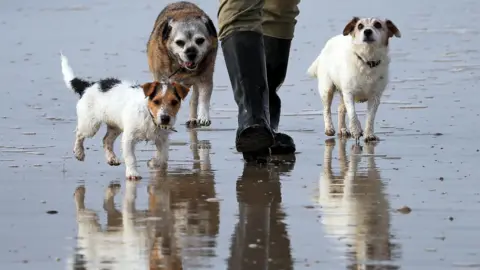Charity calls for DNA testing of dog poo
 PA Media
PA MediaA charity is gathering data on abandoned dog waste in Guernsey to help tackle the problem.
The Clean Earth Trust is recording the number and location of uncollected dog faeces in each parish to create a database that could be used as evidence in future discussions about the issue in the States.
Paul Bugden, the charity’s policy officer, suggested using DNA to identify the dogs and fine their owners if they do not pick up their animal’s waste.
States of Guernsey vet Grace Hodgkinson said testing would take "time and resources".

Mr Bugden said he realised the changes would not be implemented before the election: "It's part of the thinking that all dogs are registered and have a saliva swab taken as part of the registration process.
"Then later on, if there is uncollected poo, that could be tested and the result cross-checked with the register and the owner could be identified.
"There would be an effective way of enforcing current legislation."
States deputy vet officer Grace Hodgkinson agreed DNA testing dog waste and fining the owners would deter them from not picking up after their dog again but she said the strategy was not practical.
"To establish this would take time and resources, among many other competing priorities," she added.
She said the simplest solution was for dog owners to pick up their animal's waste, adding it was particularly important to do so around children's play areas and in fields as dog faeces could carry dangerous diseases for cattle.
Follow BBC Guernsey on X and Facebook. Send your story ideas to [email protected].
